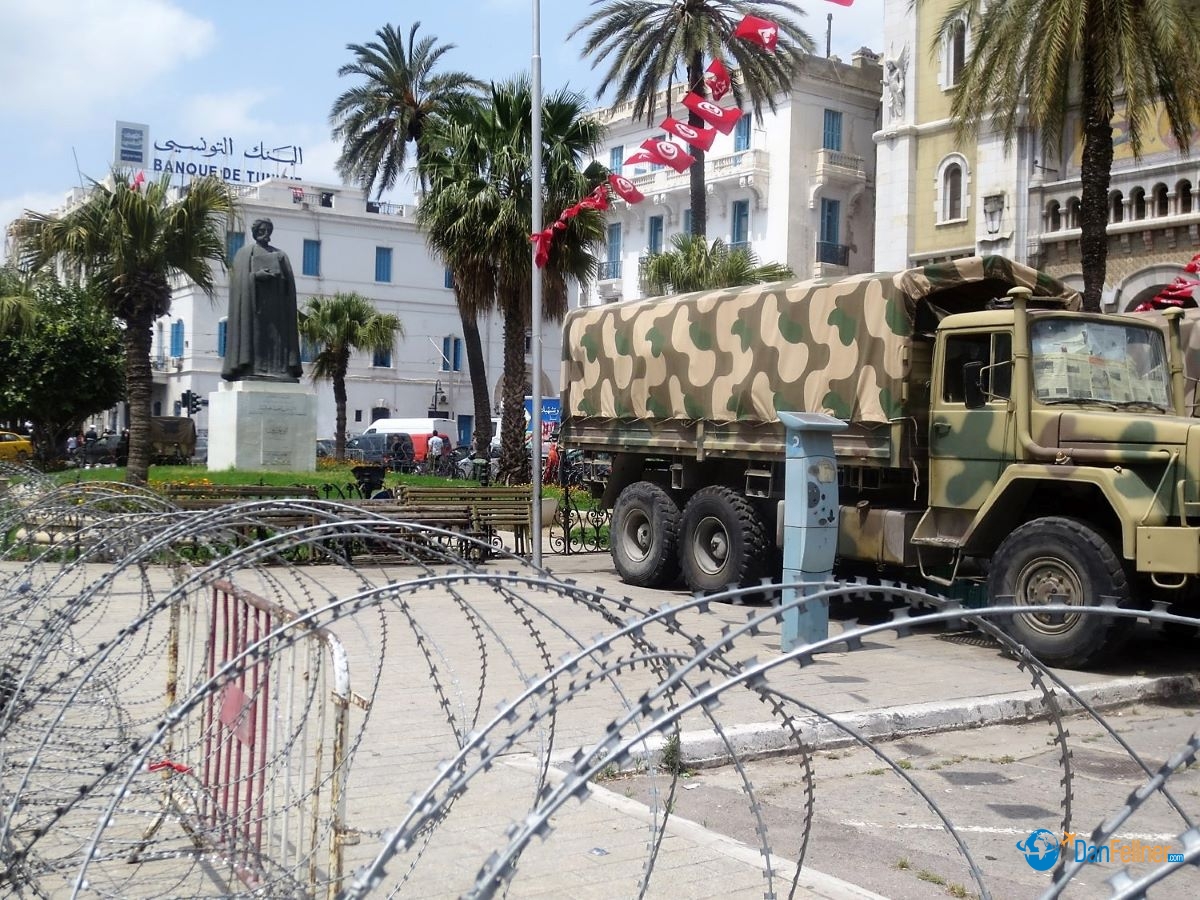My cover as a ‘Romanian’ nearly blown in this north-African country on the U.S. State Department’s travel warning list
The Arizona Republic — June 2, 2013
TUNIS, Tunisia — I’ve traveled to some pretty dicey places – countries with totalitarian regimes, civil unrest and higher crime rates than downtown Detroit. But the only time I considered canceling a trip over safety concerns was before a recent visit to Tunis, the capital of Tunisia.
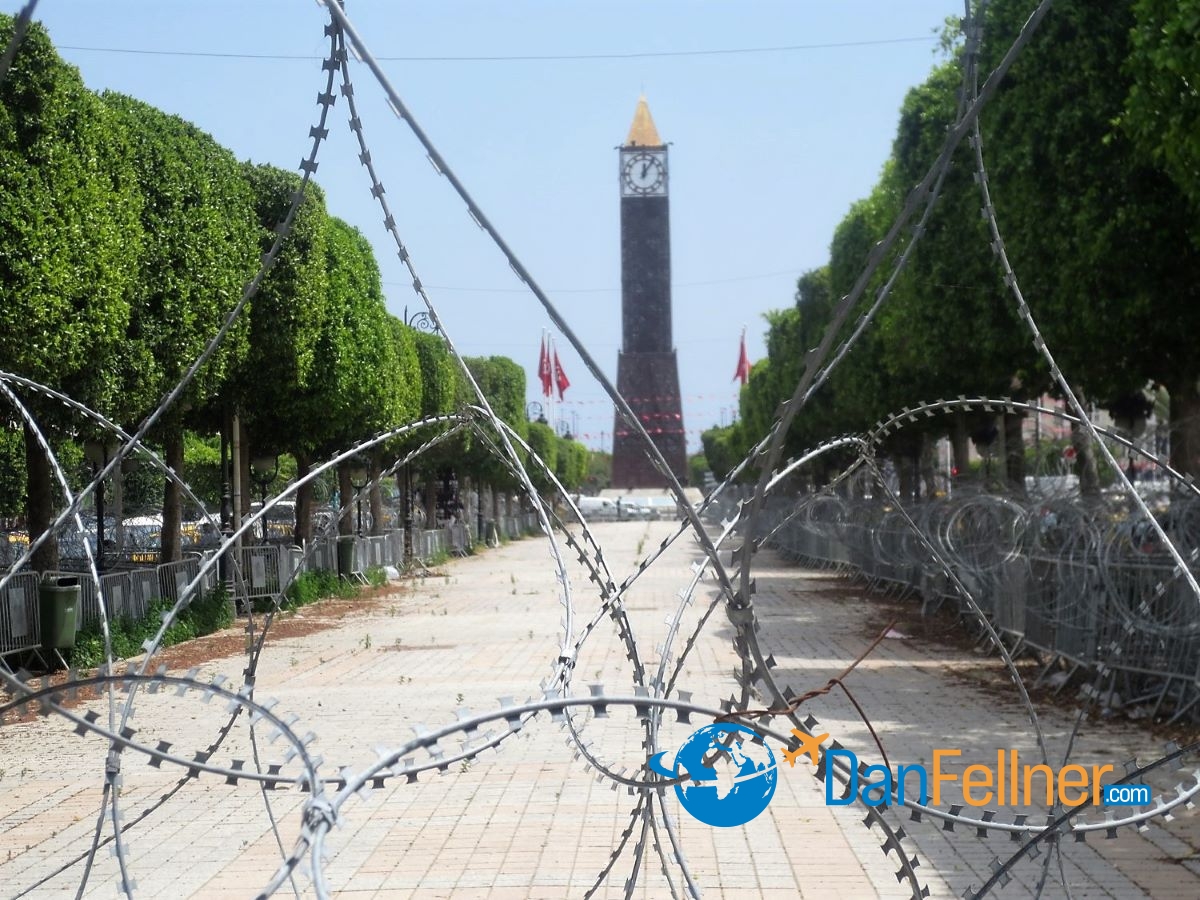
The clock tower on Avenue Habib Bourguiba in Tunis blocked off by barbed wire to prevent large crowds from assembling.
When I booked my flights nearly a year ago, this country in northern Africa looked to be a relatively safe and fascinating destination. In 2011, Tunisia was the first domino to fall in the so-called “Arab Spring.” Its president, Zine El Abidine Ben Ali, was ousted in a revolution and fled to Saudi Arabia. After some initial violence, the transition to a new government appeared relatively smooth.
But last September, Islamic extremists ransacked the U.S. Embassy in Tunis, causing extensive damage. Protesters also set fire to a nearby American school.
As a result of the violence, the U.S. State Department issued a travel warning to American citizens and ordered the departure of all non-emergency U.S. government personnel from Tunisia.
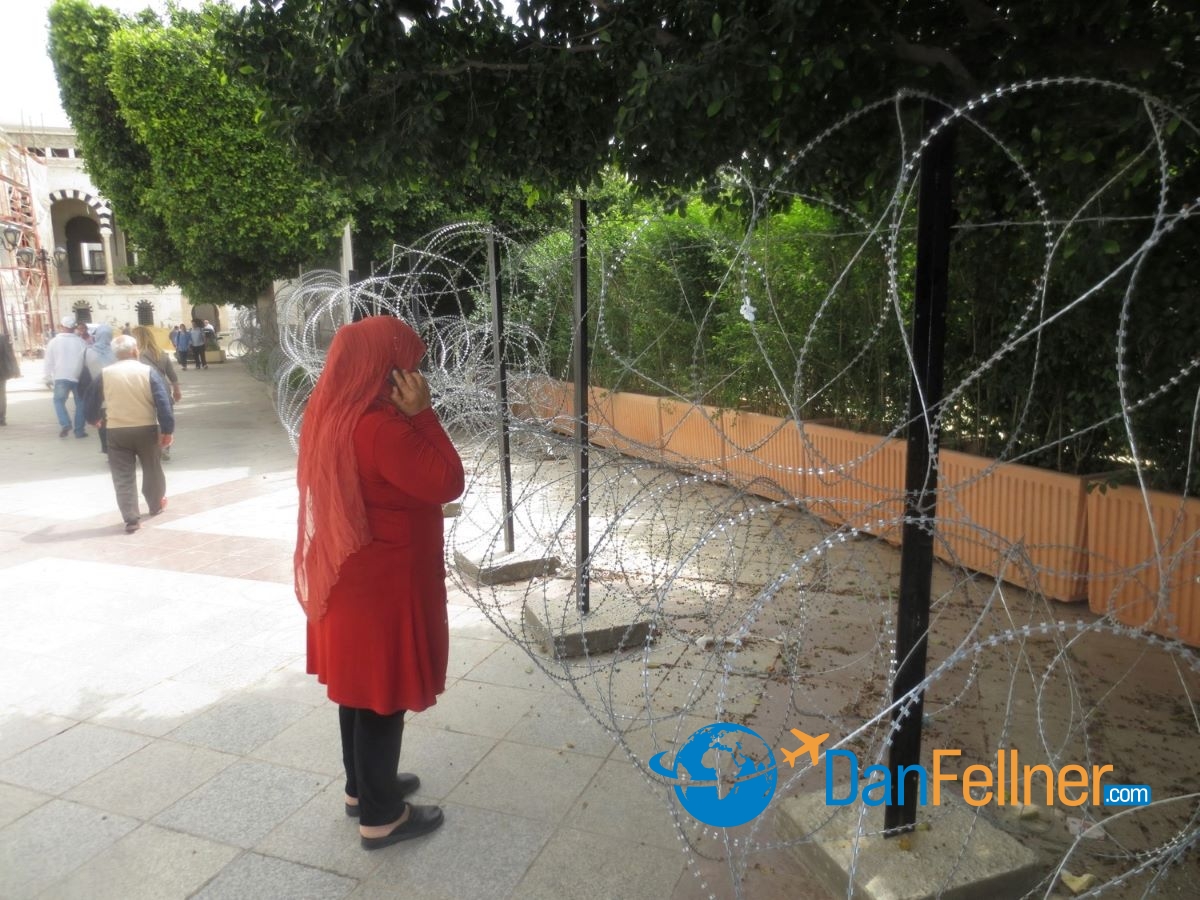
A Tunisian woman talks on her cellphone next to barbed wire outside a Tunis government building.
According to the State Department’s website, “U.S. citizens should avoid large crowds and demonstrations because even demonstrations that are meant to be peaceful can become violent and unpredictable. U.S. citizens should be alert and aware of their surroundings and maintain security awareness at all times.”
Nine months after the violence, the travel warning still hasn’t been lifted. The U.S. Embassy in Tunis is no longer on ordered departure status but continues to operate with limited staffing. Tunisia remains on the same warning list that you’ll find such potentially perilous countries like Afghanistan, Syria and Somalia.
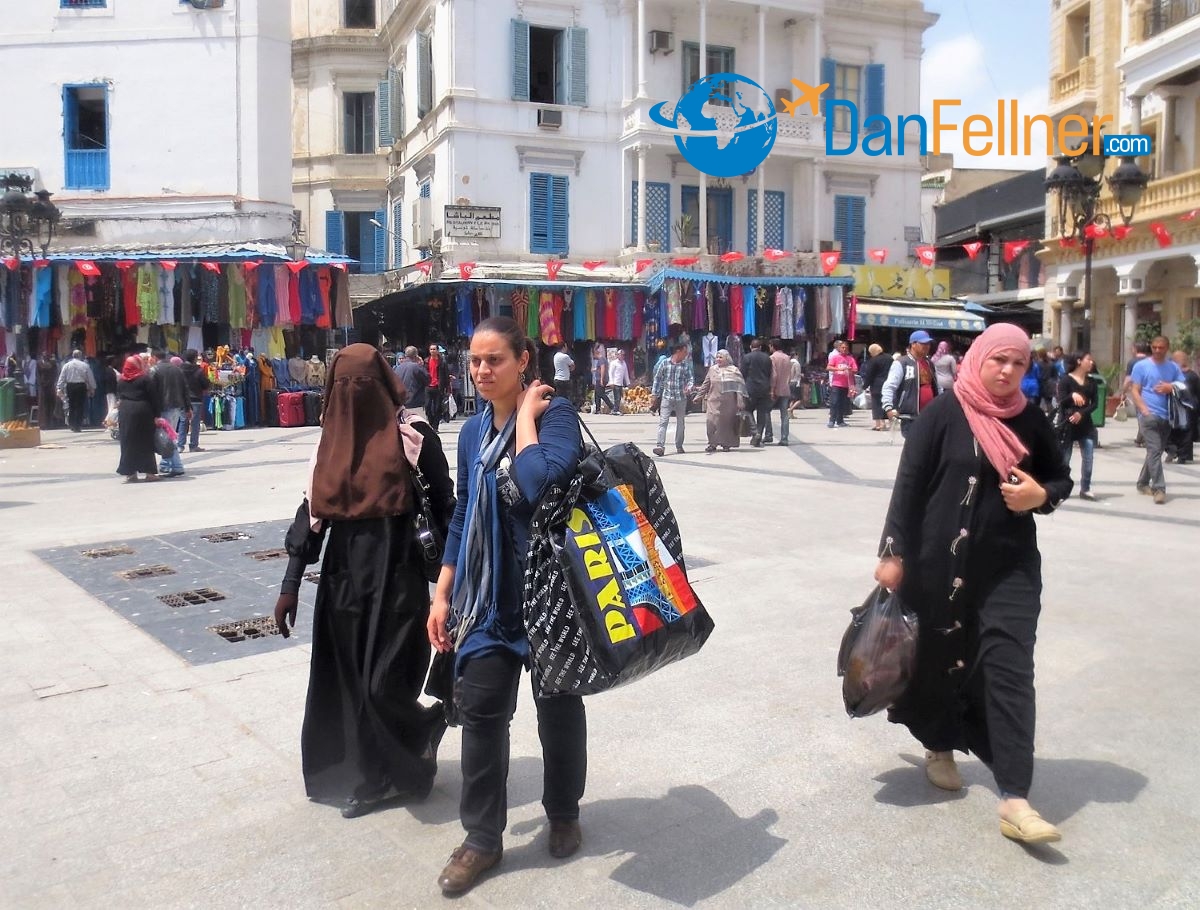
Tunis, the capital of Tunisia, has a population of more than 2 million people.
This was enough to spook my friend Henry, who was going to join me for a week in Tunisia. Even without his company, I decided to go to Tunis but shortened the trip to just a couple of days and met up with him later in nearby Malta.
When I arrived in Tunis, I found a bustling city of more than 2 million people that appeared to be functioning fairly normally. There was a heavy military presence on the main downtown thoroughfare — Avenue Habib Bourguiba — and around government buildings.
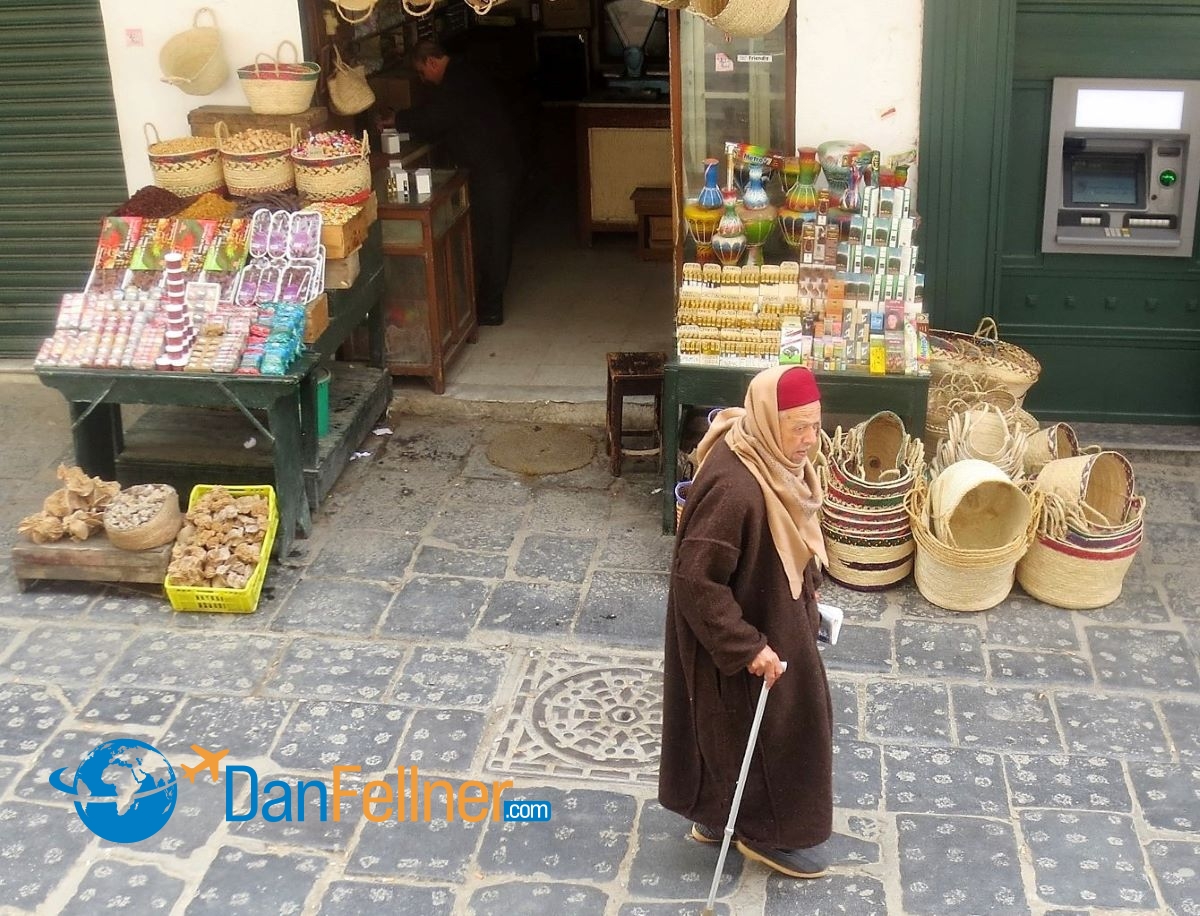
The old medina in Tunis.
I also saw a lot of barbed wire. Indeed, in some places – particularly surrounding statues and other government monuments — the downtown resembled a POW camp. A tour guide said police put up the wire to keep large crowds first from congregating and, ultimately, rioting.
I kept my wits about me but really wasn’t overly worried, but I still didn’t think it was prudent to advertise the fact that I’m American. Not that I walk around wearing an American flag or normally attend political rallies when I’m abroad, but people I encounter – especially in shops – often inquire about where I’m from.
I needed to have a quick answer on a moment’s notice. I decided to become a Romanian.
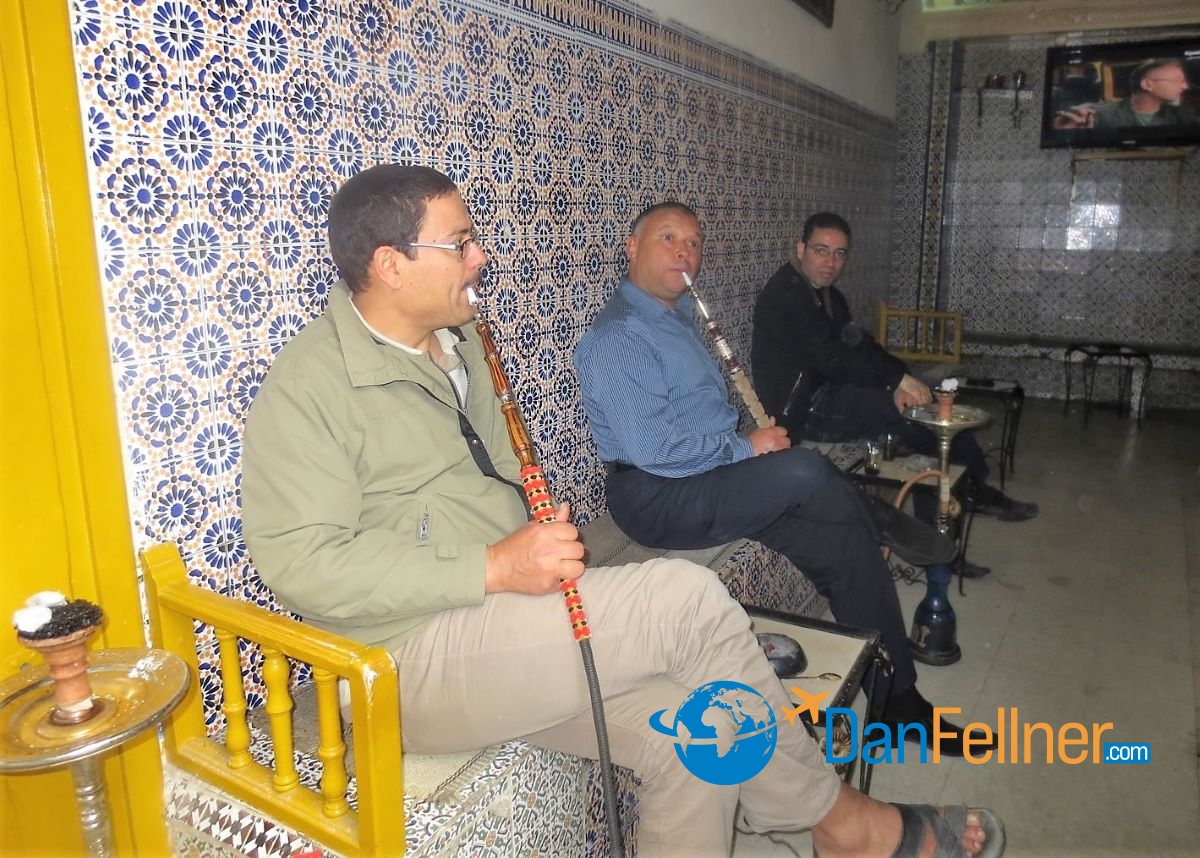
Tunisian men smoke flavored tobacco from hookah pipes at a cafe in downtown Tunis.
Why Romanian? Several reasons. I have a dark complexion and look like I could be Romanian. So far, international terrorists have not targeted Romanians. They aren’t known to be the richest people on the planet, so maybe I wouldn’t be gouged as much at souvenir shops. And I had once lived in Moldova, a small country that neighbors Romania in which Romanian is the dominant language. So if pressed, I could speak a few words of the language to help me maintain my cover.
At first, the plan seemed to be working quite well. Tunis shopkeepers in the souk, or old market, are very aggressive, and it seemed like I had to fend them off all day with a “non, merci” (Tunisia used to be a French colony, so French is widely spoken).
Occasionally, I would be asked where I was from. “Romania” usually was met with a blank look, and I would be left alone to explore the narrow streets of the city’s historic medina and souk.
But then I needed to actually buy something – a fridge magnet with the flag of Tunisia (yes, it’s hokey, but something I collect from each country I visit). So I entered a shop with a large supply of suitable souvenirs and was immediately met with the inevitable question: “Where are you from, my friend?”
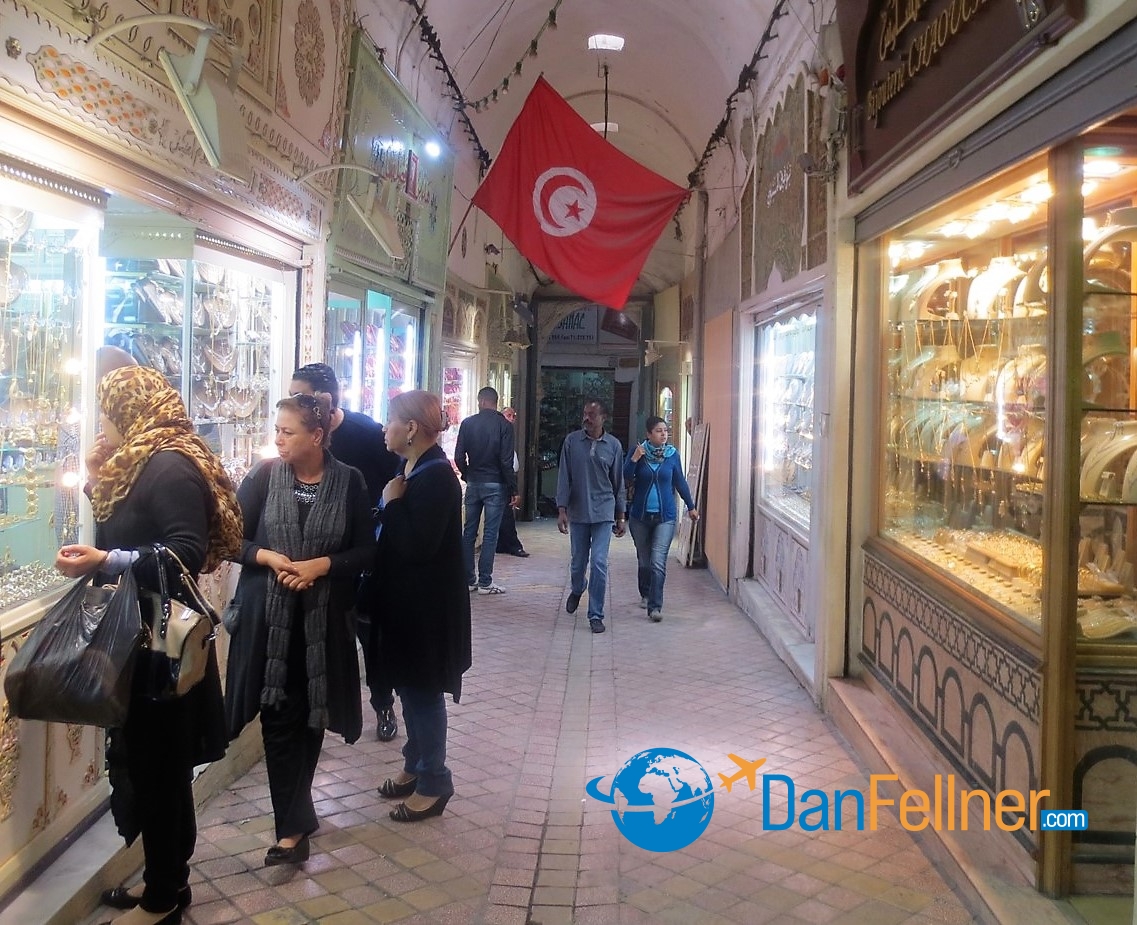
Some of the many jewelry shops in the old section of Tunis.
I was ready. “Romania,” I said, as I turned to check out the supply of magnets.
“Buna ziua,” he immediately replied. This caught my attention, as I knew it meant “good day” in Romanian. I nervously asked if he spoke the language of my “homeland.” I was lucky. He didn’t. When you sell souvenirs, you tend to learn greetings in multiple languages. Turned out, that was all the Romanian in his repertoire.
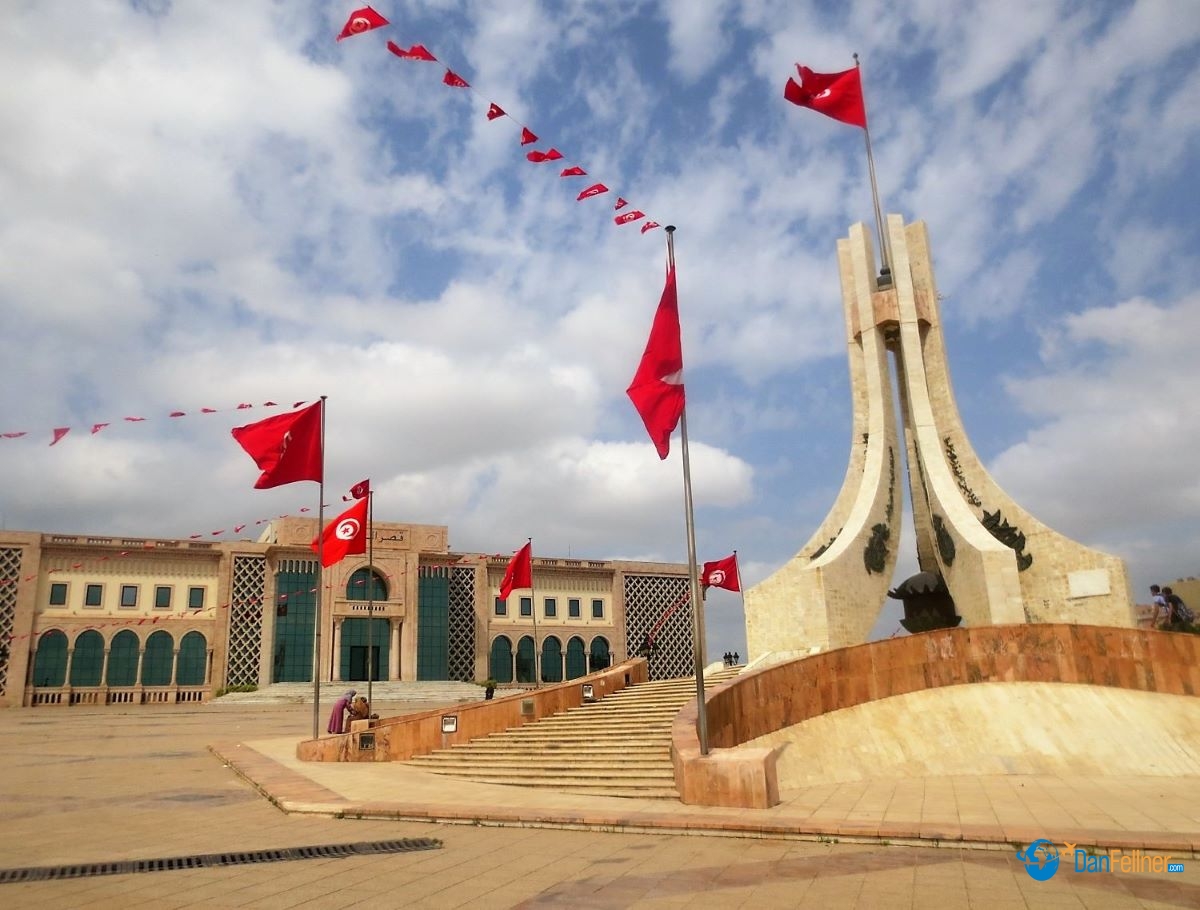
The National Monument of the Kasbah in Tunis.
My cover was safe. As I left the shop after purchasing my magnet, I asked if he knew how to say goodbye in Romanian. He shook his head.
“La revedere,” I taught him, saying it with the conviction of a true Romanian.
Safe and sound, I left Tunis the next morning for Malta, a politically stable island-country in the Mediterranean that is flooded with northern European tourists.
There, I was more than pleased to once again become an American.
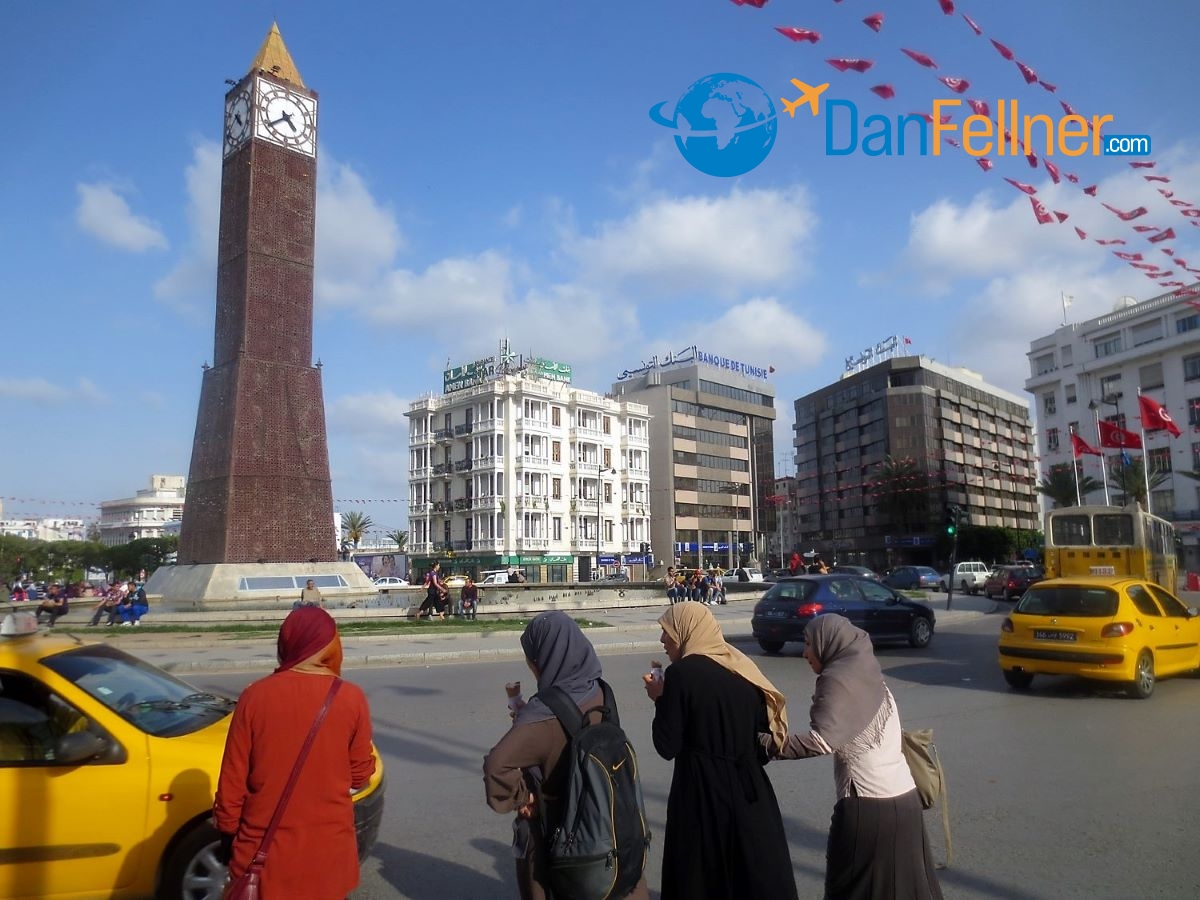
© 2013 Dan Fellner

